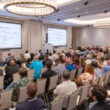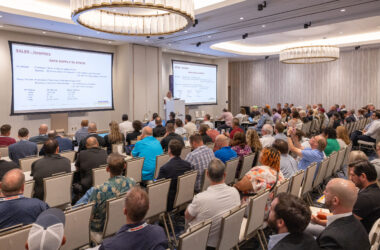The Consumer Financial Protection Bureau’s case against an auto-loan servicer ended with a U.S. District Court judge handing out penalties of more than $42 million.
It’s the latest hefty financial penalty from cases filed by federal agencies against members of the auto industry.
As a result of the judgment handed down by Judge Victoria Calvert of the Northern District of Georgia, USASF Servicing of Lawrenceville, Georgia, has been ordered to pay $25.5 million in compensatory damages, $5.8 million in restitution, $1.2 million in prejudgment interest and a civil penalty of $10 million.
USASF owned and operated 31 buy-here pay-here dealerships in the southeast. Court documents show USAF has filed for bankruptcy. It has closed its dealerships.
In filing its suit in Aug. 2023, the CFPB claimed USASF incorrectly disabled vehicles more than 7,500 times and 1,500 times after promising customers it would not. The CFPB also stated the company failed to provide GAP refunds, misapplied payments, and illegally repossessed vehicles.
The court used claims from CFPB Auto Finance Senior Program Manager Christopher Kulka to figure out the penalties.
“[T]hat $5,000 per [repossession] is a conservative and reasonable estimate of the amount of economic harm and distress suffered by a typical USASF consumer who faced a wrongful repossession…that $500 is a conservative and reasonable estimate of the amount of harm suffered by a typical USASF consumer who experienced an erroneous SID2 disable…that $100 per day is a conservative and reasonable estimate of the amount of harm suffered by a typical USASF customer who experienced erroneous warning tones,” Kulka offered to the court.
The judgment came as the Federal Trade Commission has announced recent enforcements.
The FTC and Maryland Attorney General filed a complaint in the U.S. District Court for Eastern Virginia against the Lindsay Automotive Group, alleging it deceived customers and charged them millions in junk fees and unwanted add-on products.
The FTC claims Lindsay Automotive advertised deceptive prices and promoted prices not available to most customers. The agency claimed that a sample of Lindsay’s transactions showed that 88 percent of customers paid more than $2,000 above the advertised price between 2020 and 2023.
The complaint also stated Lindsay Automotive made deceptive claims that vehicles must be financed through the dealership and that consumers were directed loans with higher rates. Customers also alleged being charged for add-ons they did not consent to or being told they were mandatory.
The complaint against Lindsay Automotive follows the $20 million settlement between the FTC and Leader Automotive Group and their parent company Auto Canada. The FTC alleged in the case the company deceived customers about the price and availability of vehicles, charged for add-ons without consent, added unnecessary fees, posted fake reviews and did not disclose some vehicles were imported from Canada.










